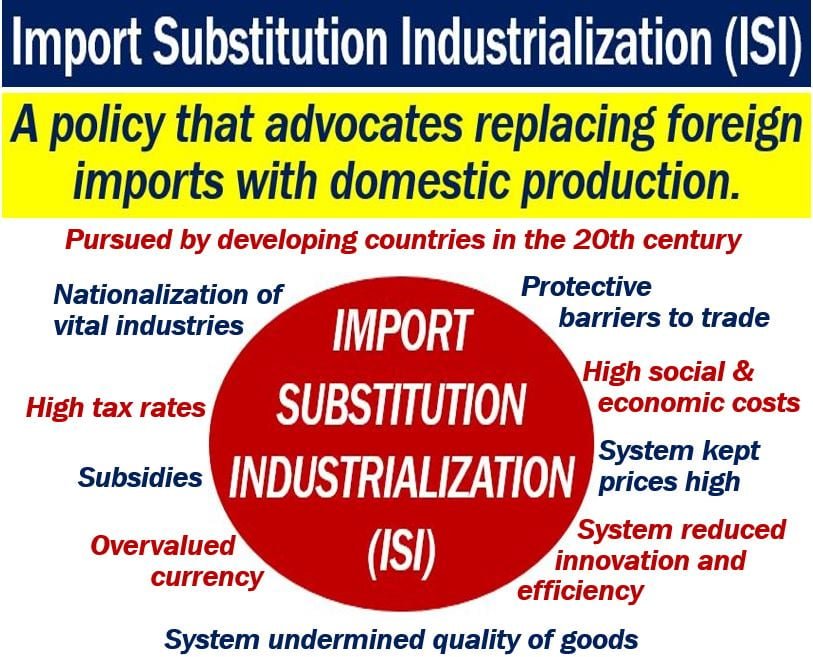Import substitution industrialization or ISI is an economic policy theory that supports replacing imports with domestic production. It is also a trade theory. The principle of import substitution industrialization is that countries should limit their dependency on imports. If a country can produce more at home, it will subsequently become more self-sufficient.
The advanced economies never follow ISI policies. It is a policy that some emerging or developing economies adhered to during the 20th century.
Among developing and emerging economies, ISI is much rarer today than it was several decades ago.
Import substitution industrialization refers to twentieth-century development economic policies. ISI, as a policy, did not last very long, say economists because it was not successful. In other words, it did not make countries more self-sufficient or prosperous.
Wikipedia says the following regarding the term:
“Import substitution industrialization (ISI) is a trade and economic policy which advocates replacing foreign imports with domestic production.”
“ISI is based on the premise that a country should attempt to reduce its foreign dependency through the local production of industrialized products.”

Import substitution industrialization failed
ISI advocates nationalization and subsidization of power generation, agriculture, and other vital industries.
It also suggests that there should be greater taxation as well as extremely protectionist trade policies. Protectionism is a government policy that attempts to reduce imports, and often exports too. The country protects its domestic companies and industries at all costs.
Import substitution industrialization was a policy that some nations in the ‘Global South‘ followed until the early 1980s.
The ‘Global South’ refers to the developing and emerging economies of Latin America, Africa, and parts of Asia.
When their economies failed, countries that had pursued ISI policies asked for financial help. They asked the World Bank and International Monetary Fund (IMF) for help.
IMF and World Bank did help. However, they insisted that their loans came with certain economic conditions.
One of the conditions was that the borrowing nations should pursue market-driven, free trade policies. In other words, they told them to abandon their import substitution industrialization plans.
